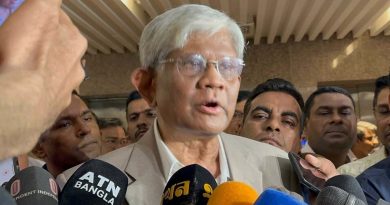The Bangladesh Bank has approved a major loan rescheduling facility for around 300 companies — including some of the country’s largest corporate defaulters — allowing repayments over up to 15 years, with low down payments and grace periods of up to three years.
The move, aimed at giving struggling firms breathing space, has drawn mixed reactions from bankers and economists. While some see it as a necessary step to help companies hit by currency volatility and rising interest rates, others warn that similar measures in the past have yielded poor recovery results.
Central bank’s rationale
Arief Hossain Khan, executive director and spokesperson of Bangladesh Bank, said the decision followed a review by a committee of experts, ministry officials, and business representatives. He noted that many of the affected companies have faced political disruptions over the past 16–17 years.
“The terms — repayment period, down payment, and grace period — were finalised through agreements between banks and borrowers,” Khan said, adding that the arrangement would reduce provisioning needs for banks while giving clients a path to recovery.
Concerns over past failures
Former deputy governor Muhammad A (Rumee) Ali voiced scepticism, questioning whether the central bank had examined the effectiveness of past rescheduling. “Surely this has been an unsuccessful model,” he said, urging for a new framework that would require greater borrower commitment, more collateral, and stricter monitoring to avoid repeating history.
Impact on banks’ cash flow
Syed Mahbubur Rahman, CEO of Mutual Trust Bank, said the central bank’s approval was based on audit firm reports, but banks would decide on rescheduling under BB guidelines. He cautioned that the move could hurt liquidity: “Where recovery might have been expected in three years, it could now take 10.”
Economists call for integrity in implementation
Fahmida Khatun, executive director of the Centre for Policy Dialogue, suggested BB’s decision reflects confidence in the audit findings, giving defaulters a final chance before stricter enforcement. However, Mustafa K Mujeri, former chief economist at the central bank, warned that while rescheduling could lower the official non-performing loan figure, the underlying repayment problem might persist.
“Such facilities must be granted with integrity and monitored closely to prevent misuse,” Mujeri stressed.






